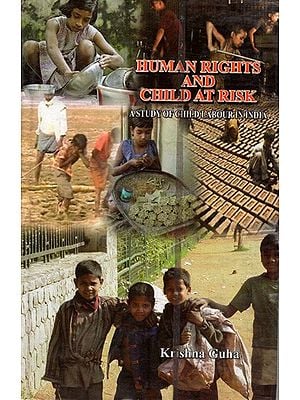Human Rights and Child at Risk: A Study of Child Labour in India By Krishna Guha
Human Rights and Child at Risk: A Study of Child Labour in India By Krishna Guha
Hardcover
Couldn't load pickup availability
Book Description
"Child Rights and Labour: A Human Rights Perspective" addresses the critical issue of child labor in India, examining the persistent exploitation faced by children in both rural and urban settings. Despite India's ratification of various international conventions aimed at protecting child rights, the plight of child laborers remains largely unchanged. This book sheds light on the harsh realities these children endure, including abuse and harassment in exploitative working conditions, all while being deprived of their fundamental human rights.
The author emphasizes the necessity of recognizing and advocating for children’s rights, such as access to compulsory and universal elementary education, strategies for women's empowerment, enforcement of child labor laws, minimum wage legislation, and social services for affected families. These elements are highlighted as essential tools in the fight against child labor, showcasing the urgent need for comprehensive action and reform.
About the Author
The author holds an M.A. in Sociology and a B.Ed. degree from Calcutta University, along with a doctoral degree from Kalyani University. Since 1981, they have served as an Associate Professor in the Department of Sociology at Malda Women's College, West Bengal. With over 30 years of teaching experience in both undergraduate and postgraduate courses, the author has also acted as an academic counselor for various IGNOU courses. Their work includes supervising projects related to gender issues and human development, and they are actively involved with several NGOs as a board member. A life member of the Indian Anthropological Society and Society for Applied Sociology India (SASI), the author regularly presents papers at academic congresses and has published numerous articles in books and journals, focusing on applied sociology.
Preface
In the preface, the author underscores the importance of children as vital assets to the nation, asserting that a country’s future hinges on the quality of its children's development—physical, social, emotional, intellectual, and educational. These developmental aspects are not only fundamental rights but also essential for nurturing capable and responsible citizens. The author stresses the need for a secure and peaceful environment for children, as it is crucial for their overall well-being.
Despite international commitments, human rights violations against children persist, both in India and globally. This book aims to highlight the ideals of children's rights while addressing the significant violations occurring in various spheres within the Indian context, advocating for a robust human rights approach to ensure a better future for all children.
Share


